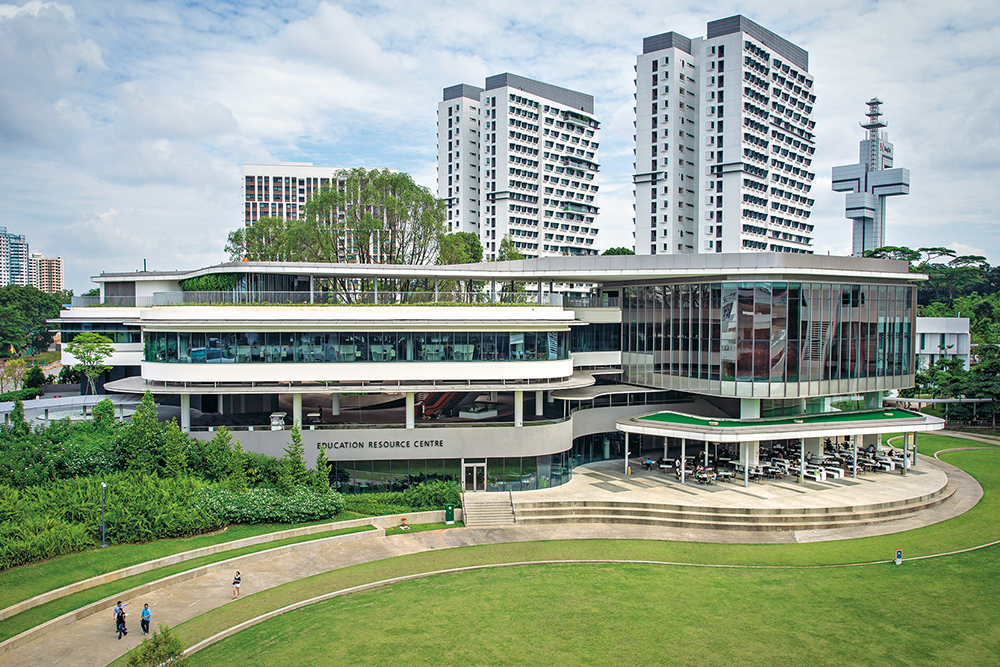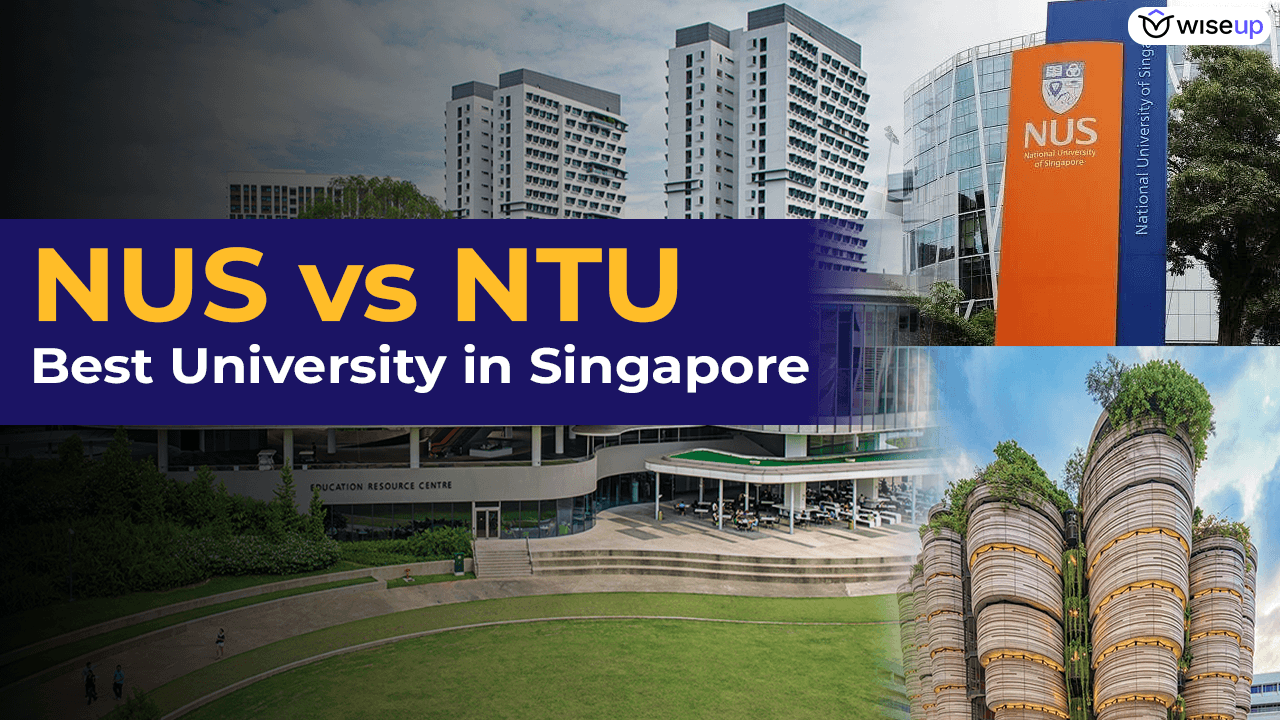NUS and NTU are two of Singapore’s top universities, known for their world-class education, cutting-edge research, and diverse student communities. Choosing between them can be tricky, as both offer unique strengths in academics, campus life, and career opportunities. I’m Neha Agrawal, an NTU alumna, and in this blog – NUS vs NTU, I’ll provide a fair comparison of both the universities to help you decide which university is the right fit for you.
1. Rankings- NUS vs NTU
NUS, established in 1905, is Singapore’s oldest and most prestigious university, consistently ranked among the best in the world.
Its legacy of over a century gives it an edge in global recognition. On the other hand, NTU, founded in 1991, has rapidly climbed the global rankings.
Despite being a young university, NTU has been ranked the world’s best young university for seven consecutive years by QS Rankings. While both universities are top-tier, NUS often edges slightly ahead in global rankings.
Given below are the QS Rankings of NUS vs NTU, although while choosing courses, it is advised to go for subject-wise rankings than just relying on general rankings.


2. Programs and Courses– NUS vs NTU
Both NUS and NTU offer world-class programs across various disciplines.
However, NUS stands out for programs like Accounting and Finance, Business Management, Psychology, Humanities, and Social Sciences.
NTU, on the other hand, excels in Engineering fields such as Electrical, Mechanical, and Environmental Engineering.
NTU’s School of Materials Science and Engineering is ranked No. 5 globally, surpassing even NUS. If you’re deciding between NUS vs NTU, focus on your chosen program to make the best choice.

3. Research Facilities- NUS vs NTU
Both universities boast cutting-edge research facilities and billions in funding.
NUS leans towards academic-oriented research, with strong collaborations with government organizations and global universities. Some example partnerships with US Universities is shown below:

NTU, meanwhile, focuses on industry-driven research, partnering with corporate giants like Rolls-Royce, BMW, Lockheed Martin, Hewlett-Packard, and Alibaba. If you’re looking for industry-oriented research, NTU might be a better fit. Some are given below:

4. Student Life – NUS vs NTU
Student life at both NUS and NTU is vibrant and diverse.
Both campuses offer numerous student clubs, societies, and events such as the Mid-Autumn Festival, Deepavali, and cultural trips.

Sports facilities, including Olympic-sized swimming pools, gyms, and courts, are top-notch.

Ultimately, your experience will depend on how actively you engage with campus life—both universities offer countless opportunities to make lifelong memories.
5. Campus – NUS vs NTU
NUS’s campus, centrally located in Singapore, is smaller with older architecture but offers easy access to the city’s attractions.

NTU, situated on the outskirts, boasts a sprawling, state-of-the-art campus with stunning landmarks like The Hive, The Arc, and the newly renovated Yunnan Garden. NTU’s campus feels like a town in itself, offering a unique and immersive experience.

6. Job Opportunities – NUS vs NTU
Graduating from either NUS or NTU significantly improves your chances of landing a job in Singapore.
While NUS undergraduates may have a slight edge due to the university’s reputation, postgraduate programs at both universities are equally well-regarded.
From my experience and that of my peers, companies do not differentiate between NTU and NUS graduates for job opportunities.
To know more about this aspect, check out this video:
7. Food – NUS vs NTU
Both campuses offer 30-40 dining options, including local cuisines, Indian food, and popular chains like Subway, Starbucks, and McDonald’s.
While NUS food is often rated slightly better in polls, NTU’s food options are equally diverse and enjoyable. You’ll never run out of choices on either campus!


8. Cost of Living – NUS vs NTU
Cost of living is generally lower at NTU.
NUS provides on-campus housing for undergraduates (1 year) and primarily for research students at the postgraduate level.

NTU offers guaranteed on-campus accommodation for undergraduates (2 years) and postgraduates, which is cheaper compared to NUS.
Off-campus housing near NTU is also more affordable due to its location on the outskirts, whereas NUS’s central location means higher rents.
.png?sfvrsn=8138e6e4_1)
Here is a summary table for quick reference about whatever was discussed in the blog:
| Category | NUS | NTU |
|---|---|---|
| Established | 1905 | 1991 |
| Global Ranking | Higher global ranking overall | Best young university (QS) |
| Strengths | Business, Social Sciences, Humanities | Engineering, Materials Science |
| Research | Academic-focused, global collaborations | Industry-focused, corporate partnerships |
| Campus | Centrally located, smaller, older | Outskirts, larger, modern architecture |
| Job Opportunities | Slight edge for undergraduates | Equal for postgraduates |
| Cost of Living | Higher (central location, limited housing) | Lower (affordable housing options) |
| Food | Rated slightly better | Equally diverse options |
Both NUS and NTU are among the best universities in Asia, offering unparalleled education, research opportunities, and student life. Your decision should depend on your chosen program, career goals, and personal preferences. Whichever university you choose, you’ll have an unforgettable experience in Singapore!
In case you need any guidance with respect to admissions, shortlisting universities, jobs in Singapore, do sign up for our Singapore Consultation.




